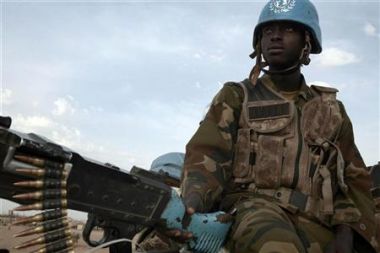Sudan's soldiers mass-raped women in Darfur, Human Rights Watch says

Soldiers from the Sudanese army committed mass rape against women and girls in a town in Darfur in the Sudan, the Human Rights Watch said.
HRW told Reuters that the soldiers mass raped an estimated 221 women and girls in the town of Tabit in Darfur between October 30 and November 1.
According to Reuters, HRW said that it spoke by phone to 15 survivors, one female witness and 23 other credible sources and obtained information about the alleged mass rape committed by the Sudanese army's soldiers.
Through phone interviews, the HRW was also able to collect the names of the 221 victims.
The Human Rights Watch condemned the mass rape, calling it an incident of "crimes against humanity."
However, the Sudanese army denied the accusations and claimed that it is designed to pressure Sudan to keep the presence of a joint United Nations-African Union peacekeeping force (UNAMID) in Darfur.
"All the accusations about Tabit area came as reaction after the Sudan government request for UNAMID to leave Sudan," Army spokesperson Alswarmi Khalid told Reuters. "Some bodies are using these false accusations as pressure to keep UNAMID in Darfur."
The UNAMID was deployed to Darfur since 2007 to prevent further hostilities between non-Arab rebels and the Arab-led Sudanese government forces. The two parties have been engaged in hostilities since 2003, when the rebels accused the Arab leaders in Khartoum of discriminating against them.
After tensions between the UNAMID and the Sudanese government arose last year, the government in Khartoum claimed it had issued a request for UNAMID in November to depart from the Darfur area.
It may be impossible now for the United Nations to investigate the HRW's claims, Reuters said, as officials from the UN, who spoke in condition of anonymity, claimed its investigators were blocked by the government in Khartoum when they visited Darfur.
The HRW was also unable to visit and conducted phone interviews instead.











